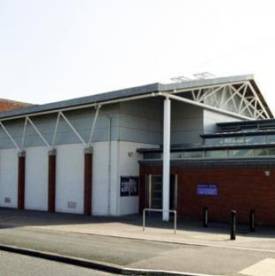
One of the Exclusive Brethren UK schools
ABC News in Australia is today reporting that the current government continues to provide funding for schools run by a controversial religious movement called the Exclusive Brethren. There has been some long-standing controversy surrounding the close relationship with the ultra-conservative movement which is an offshoot of the Plymouth Brethren, but the surprising aspect of this recent episode surrounds the fact that Kevin Rudd – the current Prime Minister of Australia – openly described the group as a “cult” whilst he was in Opposition. Since his appointment, funding for the group has increased by 50% to almost AU$14 million. The group has also been given permission for schools located in the UK, with the Beatrice Royal Art Gallery in Eastleigh being converted into one recently for temporary use.
So why are we interested in this story here at Future Conscience? Mainly because there is a very important discussion to be had surrounding the nature of new religious movements and their ability to gain public funding for their initiatives. This recent issue with the Exclusive Brethren echoes the opening of Britain’s first Hindu state-funded school – which is actually run by the International Society for Krishna Consciousness; who are more commonly referred to as the Hare Krishnas. There are many other examples of schools run by religious organisations (such as the three St James’ Independent Schools which are operated by the School of Economic Science) and the question remains as to how much, if any, funding or support they should receive from a secular government.

The Hare Krishnas are trying to portray a more positive image
For many, the problem is not that these organisations are inherently religious; but that they are groups plagued by controversy and the ever present label of being a ‘cult’. It is certainly true that the three groups mentioned in this post have courted a lot of bad will and suspicion, and indeed I would personally argue that in many instances this suspicion was well-founded. However, there is a danger that in the future other such spiritual organisations may be painted with the same broad brush and become scapegoats that suffer for the negative actions of those that came before them. Also, many such organisations – the Hare Krishnas for example – now argue that the major problems they have been accused of were in the past and recent organisational changes have helped to succumb them.
Should our tax dollars help fund schools that promote particular spiritual and/or religious ideologies? For if not, then we must also be careful that we do not find our schools becoming inherently ‘anti-spiritual’ in their teaching. It’s a really difficult topic to discuss, and I personally believe that we need things to be taken on a case-by-case basis.
We cannot be so politically correct as to be afraid to speak out against organisations that follow nefarious and possibly harmful practices. On the flip-side, we can’t allow ourselves to instantly reject new religious movements merely because they are new and small in membership. Free-thinking societies need to allow groups of individuals to exist and live the life that they choose, but there is also some responsibility to ensure that members really are choosing such a life and not being manipulated into doing so via one method or another.
What do you think? Where should we draw the line between funding and no-funding? Should small movements (not necessarily just spiritual, but also political for example) be given platforms to spread their message to those who may wish to listen to it? What is freedom of thought and what is dangerous ideology?




